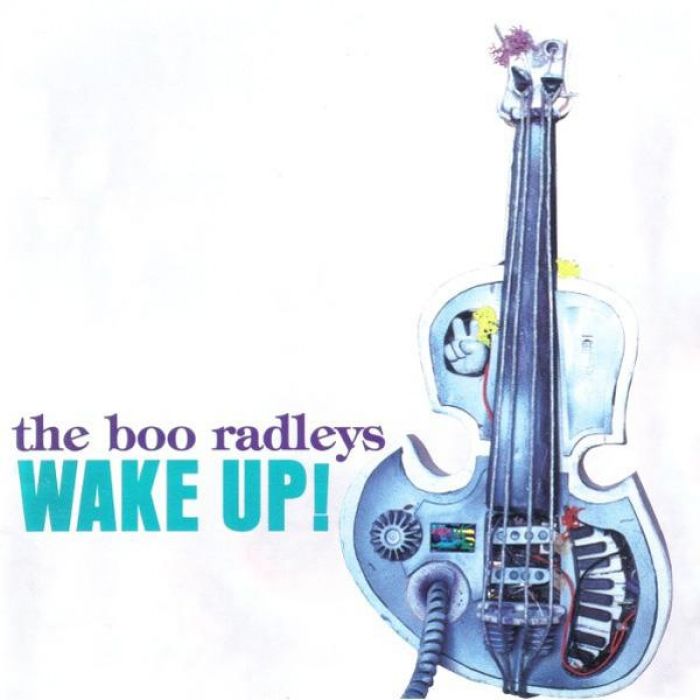Wake Up! by The Boo Radleys (Review)

My introduction to the music of The Boo Radleys was their album Everything’s Alright Forever. That album was a delightful mix of Beatle-esque harmonies and melodies and the ethereal noise of My Bloody Valentine and Swervedriver. However, that album kind of fell out of heavy rotation and basically sat on my shelf. That’s not to say that The Boo Radleys had fallen from my favor; far from it. I was just getting into other bands and kind of “forgot” about them.
Well, that’s all changed with Wake Up!, their most recent release. (I know, I know, I’m skipping Giant Steps, but that’s because I don’t have it.) Normally, I don’t really care for a lot of pop music, but Wake Up! is one heckuva pop album. From start to finish, the Boo Radleys explore the whole of pop, ranging from short, punchy numbers full of hooks to long ballads consisting of several different measures in the span of 5 or 6 minutes.
The album opens up the wonderful number “Wake Up Boo!” Right from the start, the two things that strikes one the most is Sice’s angelic vocals and Martin Carr’s solid songwriting. “Wake Up Boo!” is a pop masterpiece that, if you’re not careful, you’ll be singing along with in no time at all. This song hit #1 on British radio and stayed there for some time; it’s a shame that it didn’t do the same here in America. “It’s Lulu” continues with the vibe created in “Wake Up Boo!” using brass and all that to bounce around in your head.
“Joel” is the first of several ballads on the record. On this track, the Beatles’ influence becomes very apparent. Sice’s vocals are a dead ringer for John Lennon’s and the music is heavily influenced by both the Beatles’ pop music and psychedelic music. Other jewels include “Reaching Out From Here” (a bare, yet driving acoustic piece) and the triumphant, optimistic “Martin, Doom! It’s Seven O’Clock.”
On tracks like these, Carr’s dreamy-eyed, wondrous view comes into focus. Sure he may be lonely and down, but in the end, he’s always optimistic that things will get better. His songs are full of uplifting noise and melody that the listener can’t help but sing along with. Forget about a certain British quintet who thinks that they’re the hottest thing in rock and roll. The Boo Radleys are much more deserving of such a title.